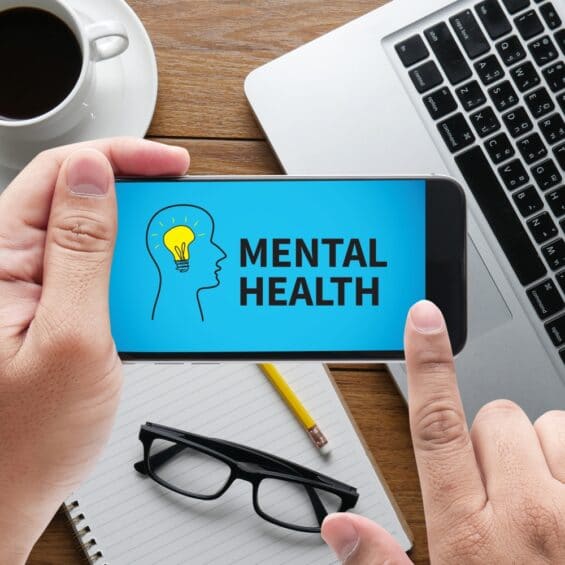Poor mental health in the workplace
Approximately 15% of employees are affected by symptoms of an existing mental health problem, and there are significant costs tied to this. In fact, employers spend about £33 billion on aspects such as, declined productivity and employee absence due to illness, according to an independent study commissioned from Deloitte. And mental health is an important component factoring into this.
Poor mental health can lead to increased disability claims, a sicker workforce, and lowered motivation at work. If employees are dissatisfied and feel unsupported in their jobs, then staff turnover and lower commitment to the organisation can follow. And this is important, because a substantial proportion of workers are thinking of leaving their jobs this year and employers may lose out on a talented, diverse workforce. So changes may need to be made by organisations. And further attention needs to be paid to mental health and wellbeing in the workplace.
The effect of the pandemic on mental health
The pandemic has had a serious impact on mental health and this deterioration in people’s mental health is expected to last long after restrictions ease, with implications for organisations and society at large.
In the past year, people’s mental health has been on a downward spiral: the furloughs, restrictions, lockdowns, and working from home challenges have made it difficult for people to retain their sense of wellbeing. This pandemic has seen a rise in levels of anxiety and depression. There were reports that people already suffering from a mental health problem prior to Covid-19 became even more affected. And in addition to this, Covid-19 restrictions brought a sense of loneliness and isolation. People lost the social support of their co-workers, as teleworking became the new norm and work interactions were resumed to Zoom calls.
A key issue related to workplace mental health during the pandemic has been this sense of insecurity and uncertainty among employees and employers alike.
Insecurity and uncertainty
For employees, job insecurity has been a major issue: not knowing whether one’s job continues or feeling powerless over the future of one’s employment has been linked to stress. Being in a state of uncertainty can increase the risk for anxiety, depression, and heart disease.
This sense of uncertainty has become increasingly widespread over the past few decades, because of aspects such as global competition and rapid technological change; there’s no doubt that levels of uncertainty have significantly been on the rise since Covid-19 emerged. This, in addition to the increasingly unpredictable economic situation has had a cumulative negative effect on people’s wellbeing.
Uncertainty is something that leaders have also been grappling with, particularly during this pandemic. Uncertainty over how to lead their teams during such times of transition and change; uncertainty over how to increase their own wellbeing and resilience, and uncertainty over ways to positively influence their employees’ mental health.
Time to take charge of mental health in the workplace
If feelings of uncertainty or insecurity persist within workers, if poor mental health is left unattended, then this can increase the risk for substance abuse and disability. And it can negatively impact work productivity. This is why it is time to take charge of wellbeing in the workplace – and to equip those in leadership positions with strategies and resources for tackling mental health-related aspects. This is why it is time for organisations and businesses to adopt a new toolkit, which can help leaders learn how to bounce back when faced with uncertainty.
There has never been a more pressing time for focusing on mental health in the workplace as now. The Covid-19 pandemic with the turbulence it has brought about – the changes in the way people work, the disruption to work-life balance, the increased dependence on technology, the health sequelae – has shown us that if we want to retain a talented, diverse workforce, we need to pay attention to mental health and wellbeing at work. After all, there’s no health without mental health.


